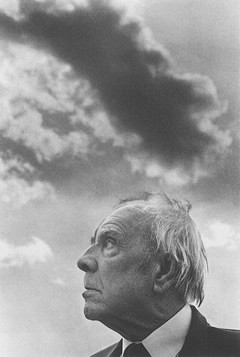ALLEGORY AND MODERNITY IN ENGLISH LITERATURE, c. 1575-1675
My thesis examines the relationship between the dynamics of allegorical reading and writing in late sixteenth- and early seventeenth-century English literary and intellectual culture and the premise of that period's (early) modernity. The relationship between allegory and modernity has deep roots in Western thought. It is, indeed, some centuries older than the word "allegory" itself: already for Plato, it was "the ancients" who "used poetical forms which concealed from the majority of men their real meaning", as opposed to "more modern times" and contemporaries who "plainly demonstrate their meaning so that even shoemakers may hear and assimilate their wisdom" (Theaetetus, 180c-d, trans. Levett and Burnyeat). Yet long after Plato himself became an ancient, similar claims continued to be made, and allegory, under its many names, has remained a point of differentiation and dispute between various sets of ancients and moderns even unto our, arguably postmodern, times. Why is this so? What is it about allegory that has been the cause of this age-long quarrel, or interrelated series of quarrels? What are the specific forms assumed by this phenomenon in the literary culture of the period that is now commonly designated as "early modern"? Do they confirm or deny the traditional view of allegory as a defining feature of premodern (medieval) against modern (Renaissance) literary sensibility? Can this key moment in the history of the allegorical traditions and its various configurations of the allegory-modernity nexus be reconsidered in terms which takes us beyond these familiar conceptual and periodizational frameworks?
Even as the scholarship on allegory is becoming increasingly comprehensive and sophisticated, even as it is outgrowing the specialist interests of largely isolated disciplines and is coalescing into a full-fledged interdisciplinary field of "allegory studies", commentary on this particular issue, the relationship between allegory and modernity, has largely remained sporadic, sketchy and inconclusive. It is this gap that my proposed research aims to fill, providing a more focused and comprehensive examination of the subject than has thus far been available. It is not simply a matter of asking whether allegory is premodern, (early) modern, or postmodern, or whether this or that period in literary history is pro-, anti-, or neo-allegorically inclined. It is rather a matter of carefully delineating what is at stake in these and other related questions, on what grounds they have been raised and answered, what they really mean – perhaps above all, why they continue to matter. That they do continue to matter seems clear enough. Indeed, the past several decades have only seen them multiply, so that today we must also ask ourselves what it means to look at sixteenth- and seventeenth-century allegory from a vantage point informed by, although not necessarily aligned with, the late twentieth-century "return of allegory" originating in the work of such figures as Walter Benjamin and Paul de Man. This revisionist impulse has attempted, with a remarkable degree of success, to reverse the previously dominant view of allegory as an outlived hermeneutic, literary and artistic practice. But is it merely coincidental that this rehabilitation of allegory is so conspicuously coterminous with the onset of the notions of postmodernity and postmodernism? Perhaps we have not, as one critic has conjectured, "reentered an allegorical age" (Quilligan, The Language of Allegory, p. 155), but perhaps we do find ourselves suitably positioned to reappraise the place of allegory in former ages, and especially the one in which, ostensibly, lie the origins of our own post/modernity.
The thesis will pursue these concerns through four chapters, on "Allegory and Modernity", "Allegory and Poetics", "Allegory and Drama", and "Allegory and Epic". The first chapter will set out the historical and theoretical framework of the thesis, while the remaining three are envisaged as a series of "case studies", each examining some aspect of the relationship between allegory and modernity on a suitable selection of late sixteenth- and early seventeenth-century works, genres, or hermeneutic traditions. These will include such canonical works as Sidney's Defence of Poetry, Shakespeare's Hamlet, or Milton's Paradise Lost, as well as other, less frequently discussed, but no less important and revealing texts. The thesis will conclude with an epilogue on "Neoallegory and Postmodernity", exploring the possible implications of the "postmodern" rehabilitation of allegory on the reading of "early modern" texts, and vice versa.
At present, I am mostly working on the second chapter, "Allegory and Poetics", which examines the place of the allegorical doctrine in the critical treatises and other relevant documents and statements produced in the period covered by the study. The chapter begins with a survey of the treatment of allegory in previous scholarship on English "Renaissance" poetics, and moves on to a fresh re-examination of the corpus in the light of the concerns outlined above. A partial draft has been submitted as part of my PhD upgrade dossier and has benefitted from the comments of my upgrade examiners, Professor Elizabeth Clarke and Professor Thomas Docherty
and Professor Thomas Docherty . I have also presented some of the basic arguments in this chapter at the Department's 2012 Postgraduate Symposium, in a paper entitled "Allegory and the Construction of Modernity in the Study of Renaissance Poetics".
. I have also presented some of the basic arguments in this chapter at the Department's 2012 Postgraduate Symposium, in a paper entitled "Allegory and the Construction of Modernity in the Study of Renaissance Poetics".
 and Professor Thomas Docherty
and Professor Thomas Docherty . I have also presented some of the basic arguments in this chapter at the Department's 2012 Postgraduate Symposium, in a paper entitled "Allegory and the Construction of Modernity in the Study of Renaissance Poetics".
. I have also presented some of the basic arguments in this chapter at the Department's 2012 Postgraduate Symposium, in a paper entitled "Allegory and the Construction of Modernity in the Study of Renaissance Poetics".
